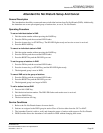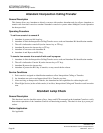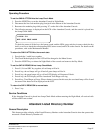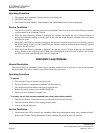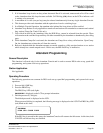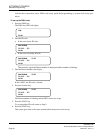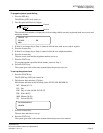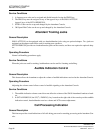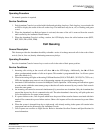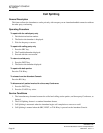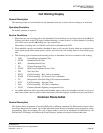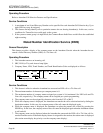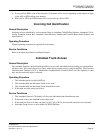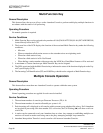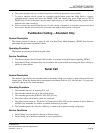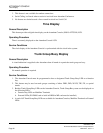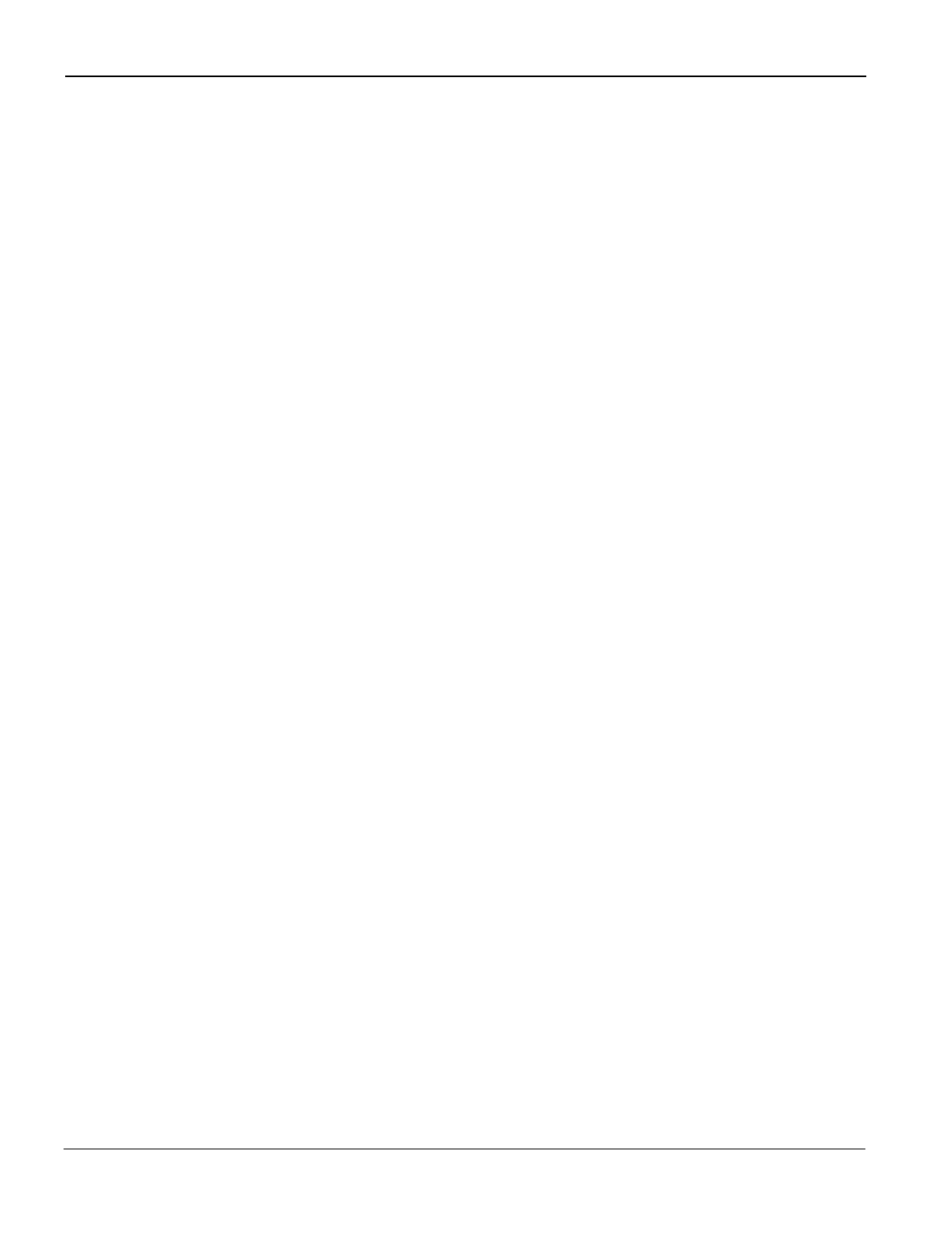
ATTENDANT CONSOLE
Call Queuing
NEAX2000 IVS
2
Business/Hotel/Data Features and Specifications
NDA-24271, Issue 1.0
Page 33
Operating Procedure
No manual operation is required.
Service Conditions
1. Each Attendant Console is provided with 6 dedicated switching loop keys. Each loop key is associated with
an LED to display the status of the call on that loop. The indicators may be on, off, or flashing, and green
or red.
2. When the Attendant Loop Release feature is activated, the status of the call is removed from the console
until recalled by the Automatic Recall feature.
3. When the Attendant Console is calling a station, the LCD display shows the called stations status (BSY,
RST, PCK, FDA, FDN, FDB).
Call Queuing
General Description
This feature provides the Attendant the ability to handle a series of exchange network calls in the order of their
arrival, (first in, first out) thereby eliminating unnecessary delays.
Operating Procedure
Press the Attendant Console Answer key to receive calls in the order of their queue position.
Service Conditions
1. Incoming calls arriving at the console will show
CW
on the LCD display. Additionally, the
CW
will flash
when a predetermined number of calls are in queue. This number is programmable from 1 to 48 on a system
basis (the default is 6).
2. When an incoming call lights an Incoming Call Identification (LDN, ATND, RCL, WATS, FX, CCSA, etc.)
LED, the Attendant may answer it out of the queuing sequence by pressing the indicated key.
3. Automatic Call Distribution is not used in Multiple Console Operation. All incoming call indications appear
at each console within the same tenant group so that the call can be answered by any console. Each console
shares the same queue.
4. An incoming call cannot be answered simultaneously by more than one Attendant. Only the Attendant that
pressed the Answer key first is connected to the call. The other Attendant's Answer key will pick up the next
call or be ineffective (no queue) when pressed.
5. If a power failure occurs, calls in queue which have the power failure transfer feature associated with their
trunk will be connected to power failure stations. Other calls in queue will not be connected to power failure
stations.
6. When the system is changed from day to night mode, calls already waiting in the queue will remain in the
same queue and can be answered by the Attendant Console.
7. Calls in queue can overflow to Night Service. Refer to Attendant Overflow Features and Specifications for
more information.



